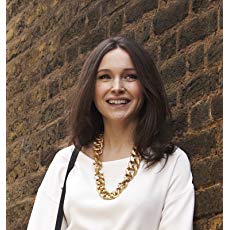 I won Seven Days of Us through Goodreads and devoured it, a story full of complicated family dynamics imploding from mandatory quarantine due to a daughter’s work in treating an epidemic—my review here. Francesca is not the first novelist I’ve interviewed who is also a journalist, which I expect imbues their fiction with nuanced description from honed observation skills, and a broad sense of the real world. I’m honored to share another talented journalistic novelist with my readers. If you haven’t yet read Seven Days of Us, I recommend it highly. Enjoy learning about Francesca’s process and creativity. Links to connect with Francesca and purchase Seven Days of Us are at the end of the interview.
I won Seven Days of Us through Goodreads and devoured it, a story full of complicated family dynamics imploding from mandatory quarantine due to a daughter’s work in treating an epidemic—my review here. Francesca is not the first novelist I’ve interviewed who is also a journalist, which I expect imbues their fiction with nuanced description from honed observation skills, and a broad sense of the real world. I’m honored to share another talented journalistic novelist with my readers. If you haven’t yet read Seven Days of Us, I recommend it highly. Enjoy learning about Francesca’s process and creativity. Links to connect with Francesca and purchase Seven Days of Us are at the end of the interview.
Describe your writing process—schedule, environment(s), strategies / techniques, and inspirations big and small, tangible and abstract: writers, quotes, objects, places, ideas, etc.
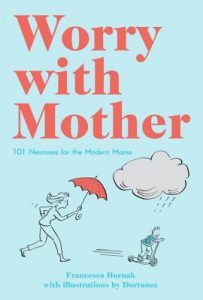 I try to write every weekday morning between 9:15 and 12:15, which is the window when both my children are in nursery. I’m actually glad it’s so regimented, as it enforces a kind of ‘exam conditions’ pressure, which I find easier than if I had all day at my disposal. I could write at home, but I generally go to a café or library, as I like to work surrounded by strangers, and I always get more done in a place where I’m not connected to the Wi-Fi. I usually begin by having a really elaborate breakfast over my laptop, which I definitely wouldn’t recommend as a writing strategy, but I’ve now come to believe that I physically can’t write without a particular kind of coffee/juice/toast/peanut butter etc. Other than that I’m not too particular; I just always avert my eyes from the Wi-Fi password and usually wear earplugs—unless I’m eavesdropping on an especially interesting conversation. Inspiration is a mix of internal and external. It might be something I’ve experienced, that I want to relive through a character., or it might be a news story, or a chance conversation, that sparks an idea.
I try to write every weekday morning between 9:15 and 12:15, which is the window when both my children are in nursery. I’m actually glad it’s so regimented, as it enforces a kind of ‘exam conditions’ pressure, which I find easier than if I had all day at my disposal. I could write at home, but I generally go to a café or library, as I like to work surrounded by strangers, and I always get more done in a place where I’m not connected to the Wi-Fi. I usually begin by having a really elaborate breakfast over my laptop, which I definitely wouldn’t recommend as a writing strategy, but I’ve now come to believe that I physically can’t write without a particular kind of coffee/juice/toast/peanut butter etc. Other than that I’m not too particular; I just always avert my eyes from the Wi-Fi password and usually wear earplugs—unless I’m eavesdropping on an especially interesting conversation. Inspiration is a mix of internal and external. It might be something I’ve experienced, that I want to relive through a character., or it might be a news story, or a chance conversation, that sparks an idea.
Walk me through your publishing process from final draft to final product—who does what, your input, and marketing done by you as the author, and talk to me about pre-empted TV rights for Seven Days of Us.
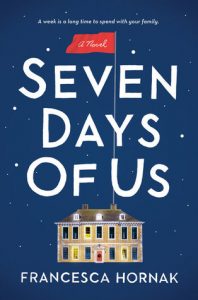 The final product wasn’t hugely different to the final draft, and luckily my editors (I edited UK and US editions simultaneously) agreed on everything. There were two scenes in my draft that we all felt were implausible or melodramatic, so I cut one and changed the other. Jesse’s character (the illegitimate son who gatecrashes his birth father’s quarantine) was also given a little more backstory and depth. The rest of the editing was mostly me finessing the wording. I’d rushed submitting to publishers, as my agent and I were both pregnant and wanted to get the manuscript out before we gave birth. So I wanted to perfect nearly everything—towards the end my US editor did suggest I ‘cease and desist’….
The final product wasn’t hugely different to the final draft, and luckily my editors (I edited UK and US editions simultaneously) agreed on everything. There were two scenes in my draft that we all felt were implausible or melodramatic, so I cut one and changed the other. Jesse’s character (the illegitimate son who gatecrashes his birth father’s quarantine) was also given a little more backstory and depth. The rest of the editing was mostly me finessing the wording. I’d rushed submitting to publishers, as my agent and I were both pregnant and wanted to get the manuscript out before we gave birth. So I wanted to perfect nearly everything—towards the end my US editor did suggest I ‘cease and desist’….
The marketing and publicity I’ve done has mostly been writing pieces for magazines, radio interviews, the odd talk, and Q&As like these. It’s all fun to do, and working in journalism means the press side isn’t new to me—I’m just on the other side to before. The TV rights were bought by a company called Little Island before the book was published, after my agent sent the manuscript out to a few scouts, and now Entertainment One is on board too which is great.
Tell me about your support system online and IRL—who are your biggest cheerleaders, and what keeps you going?
My biggest real life cheerleaders are my husband, mother, agent and editor—although I mostly really enjoy writing fiction, so I don’t really feel in need of a support system (it’s less stressful than working at a magazine!). I’m not part of any online writing community, but I have a few friends who happen to be writers who I sometimes run plot dilemmas by via email. What keeps me going is the fact that I always need that next chunk of advance money! And I don’t like to miss deadlines.
How has your journalist background prepared you for writing novels—how does your life influence your art and vice versa?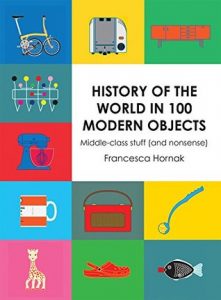
I think the obvious thing is that it helps you to see writing as a job, which is useful for actually finishing a draft. But I hope it also makes me more rigorous about what I’m offering a reader. As a commissioning editor and features writer, I spent ten years thinking ‘Would anyone want to read this story?’ or ‘Has this been done before?’ or ‘Is this the most entertaining way I can convey this information?’ and I’m glad I had that training. I don’t think my fiction writing especially influences my life, except that half of my brain is always thinking about what I could be writing. But that was the same when I was a journalist.
What do you love most about your creativity?
The escapism of diving into my own fictional world every day, I think. It’s like having a telescope onto a parallel universe. I also really enjoy wearing athleisure for work.
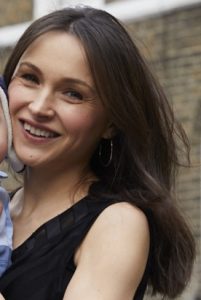 Connect with Francesca:
Connect with Francesca: